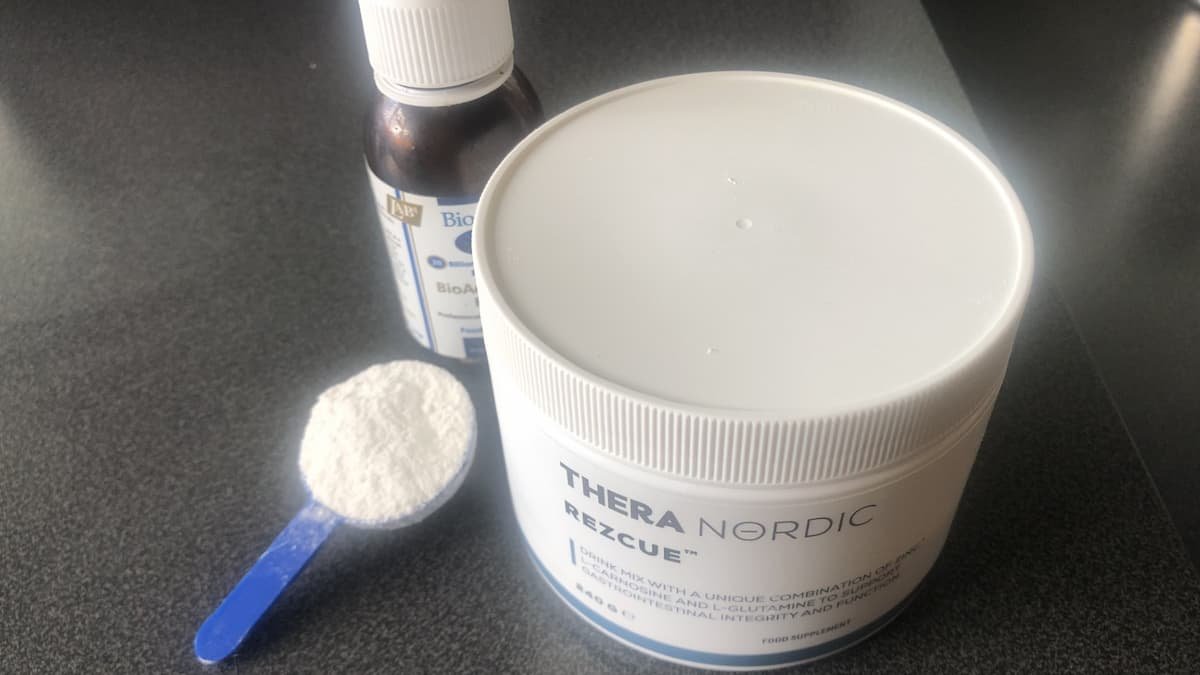As the days grow shorter and temperatures drop during the winter months, vitamin D deficiency is something we need to consider.
Many of us find ourselves spending more time indoors, often basking in the warmth of our homes rather than the sun’s gentle rays.
This brings with it a potential concern: a decrease in our exposure to natural sunlight.
This shift in sunlight exposure can directly impact our vitamin D levels, making it an opportune time to explore the crucial benefits of vitamin D during the winter and symptoms of a vitamin D deficiency.
The Sunshine Vitamin
Vitamin D, often referred to as the “sunshine vitamin,” is a fat-soluble nutrient that plays a pivotal role in various aspects of our health.
While it’s essential year-round, its significance becomes particularly evident in winter when our sun exposure dwindles, leading to an increased chance of vitamin D deficiency.

Difficult to Obtain From The Diet
It is very difficult to get adequate vitamin D from the food we eat as few foods naturally contain substantial amounts of this nutrient, therefore we are heavily reliant on sun exposure to fight against vitamin D deficiency.
This can be problem for most of the UK population throughout the winter months, not to mention shift workers who may work nights and therefore sleep during the day, meaning even in the summer their sun exposure is somewhat limited.
Another risk factor for vitamin D deficiency is having darker skin. Individuals with darker skin have more of the pigment melanin, which reduces the body’s ability to synthesize vitamin D from the sun, therefore leading to lower vitamin D levels.
This study states that people with darker skin need longer exposure to sunlight to be able to synthesize adequate vitamin D.
Symptoms of Vitamin D Deficiency
- Fatigue
- Muscle weakness
- Depression or feelings of sadness
- Loss of appetite
- Hair loss
- Frequent coughs and colds
- Poor sleep

Why is Vitamin D Important?
1. Strong and Healthy Bones
One of the most well-known benefits of vitamin D is its role in promoting strong and healthy bones.
Vitamin D aids in the absorption of calcium and phosphorus from the food you eat, which are essential minerals for bone formation and maintenance.
The NHS states getting adequate vitamin D is a key preventative measure for Osteoporosis.
With a vitamin D deficiency, your body struggles to absorb calcium efficiently, leading to weakened bones and a higher risk of conditions like osteoporosis.
2. Immune System Support
Vitamin D is increasingly recognised for its crucial role in supporting the immune system.
It helps your body fight off infections and illnesses by enhancing the production of antimicrobial proteins and peptides.
Research suggests that individuals with adequate vitamin D levels may experience fewer infections and have a reduced risk of autoimmune diseases.
3. Mood and Mental Health
There is a growing body of evidence linking vitamin D to mood and mental health.
Low levels of this vitamin have been associated with an increased risk of depression and other mood disorders.
Vitamin D is needed for the synthesis of the ‘happy hormones’ serotonin and dopamine in the brain and therefore low levels of these hormones can lead to feelings of sadness and depression.
A study suggests detection and treatment of a vitamin D deficiency could lead to a better quality of life in people with depression and other mental health disorders.
4. Cardiovascular Health
Vitamin D plays a role in maintaining cardiovascular health. It may help regulate blood pressure, reduce inflammation, and improve overall heart function.
Adequate vitamin D levels have been associated with a lower risk of heart disease and stroke.
An article suggests vitamin D supplements may improve heart function in chronic heart failure patients.

5. Cancer Prevention
Although more research is needed in this area, some studies suggest that vitamin D may play a role in cancer prevention.
It is believed that vitamin D may help regulate cell growth and inhibit the development of cancerous cells in various organs, including the breast, prostate, and colon.
Vitamin D is an antioxidant and therefore can help regulate oxidative stress which is linked to cancer as outlined in this article.
6. Possibly Reduce IBS Symptoms
Vitamin D has been linked to many systemic disorders.
A study found that Vitamin D deficiency is highly prevalent in Irritable Bowel Syndrome (IBS) sufferers. Therefore, vitamin D supplementation could play a therapeutic role in the treatment of IBS.
How Much Vitamin D Do I Need?
The NHS states that children from the age of 1 and adults need 10 micrograms of vitamin D per day.
From April to the end of September most people can make all the vitamin D they need through sunlight on their skin. This is because in most cases more of the body is exposed to the sun e.g., arms, neck, etc.
Therefore, exposure for around 10 minutes daily, at noon should suffice. However, throughout Autumn and winter around 2 hours of sun exposure is needed, therefore this is obviously significantly more difficult!
People at an Increased Risk of a Deficiency
Some groups of people are more at risk of vitamin D deficiency, as already mentioned people with darker skin e.g., individuals with an African, African-Caribbean, or South Asian Background as they can’t make enough vitamin D from sunlight.
Other people at risk are shift workers, people who are predominantly housebound, and individuals who usually wear clothes that cover up most of their skin when outdoors.
Should I Take a Vitamin D Supplement?
Unless you fit some any of the above ‘at risk’ groups from April through to September your body should be able to make adequate Vitamin D via sunlight exposure.
However, from October through to March this is a lot more difficult, therefore the World Health Organisation advises that most people in the UK should consider taking a supplement during these months.

This Vitamin D supplement by Biocare is a good option, being liquid, it is much more easily absorbed by the body. Feel free to use my discount code P7891 when ordering.
Versatile Nutrient
Vitamin D is a versatile nutrient with a wide range of health benefits.
From supporting bone health to boosting the immune system, improving mood, and potentially preventing chronic diseases, the advantages of maintaining adequate vitamin D levels cannot be overstated.
To ensure you’re getting enough vitamin D, consider spending time in the sun, and taking supplements if necessary, especially during the autumn and winter months.
Prioritising your vitamin D intake is a small step that can yield significant improvements in your overall health and well-being.
If you would like more nutrition advice to optimise your well-being I offer online Nutrition Consultancy
You can further advance your health by combining Personal Training exercise with Nutritional Therapy, with combined packages of Nutritional Therapy and Personal Training available.








